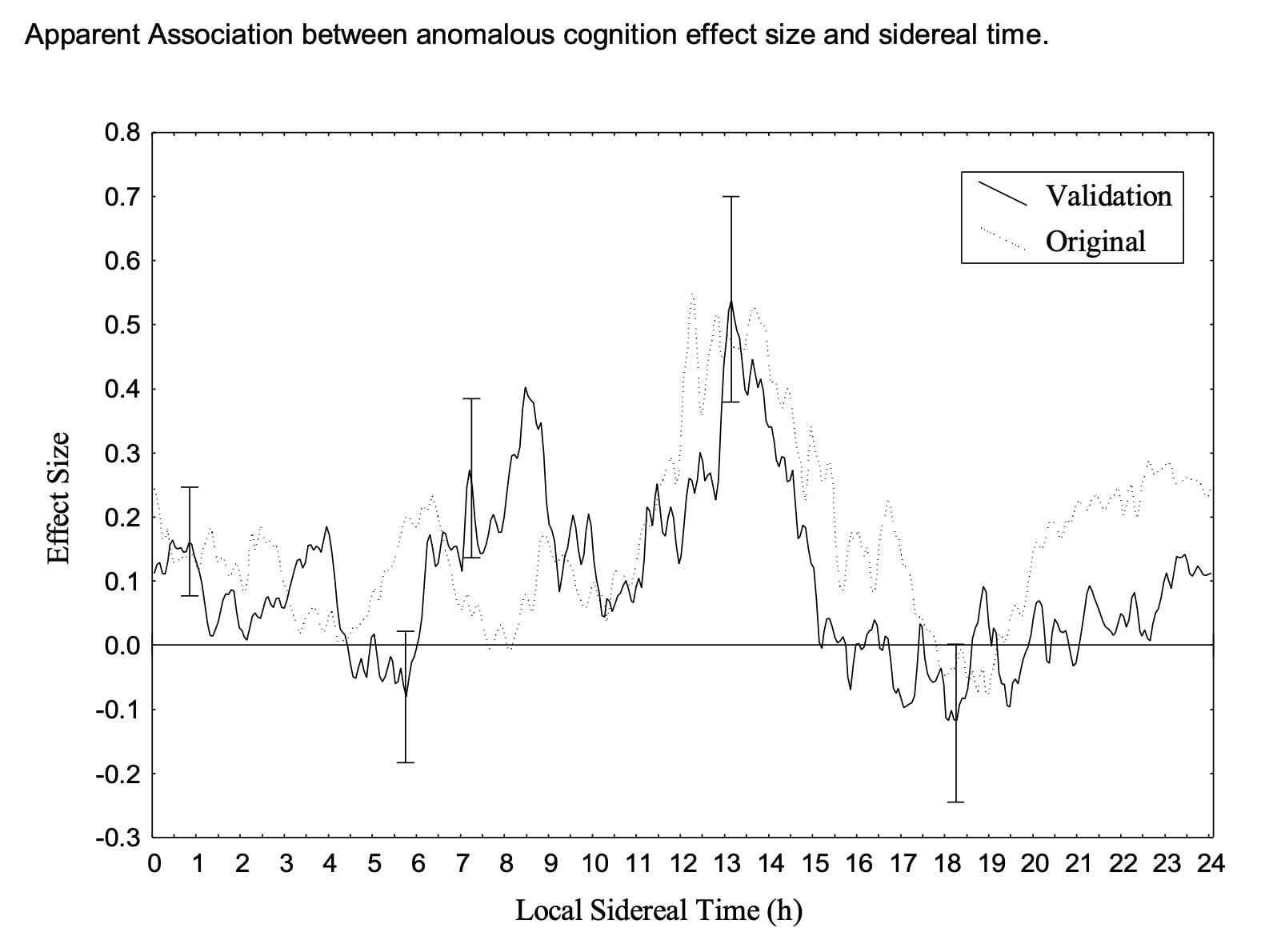Revisiting the Tinley Park Lights
175 strangers filed independent reports about the same thing. 96% agreed on the color. 100% agreed on the sound. I ran the data on the Tinley Park Lights.
Tune in to your psychic circadian rhythm.
This research article dives into the shadowy world where science meets the esoteric.
It's all about exploring whether our psychic abilities (like ESP) are influenced by the stars' position in the sky. The researchers looked at over 1400 trials and found something amazing: people's psychic powers seemed to get a huge boost (up to 450% more effective!) around a certain time when the Earth lines up with specific stars.

It's like the universe has a 'magic hour' for psychic phenomena. Science fiction? Maybe not!
Download the PDF from ResearchGate here.